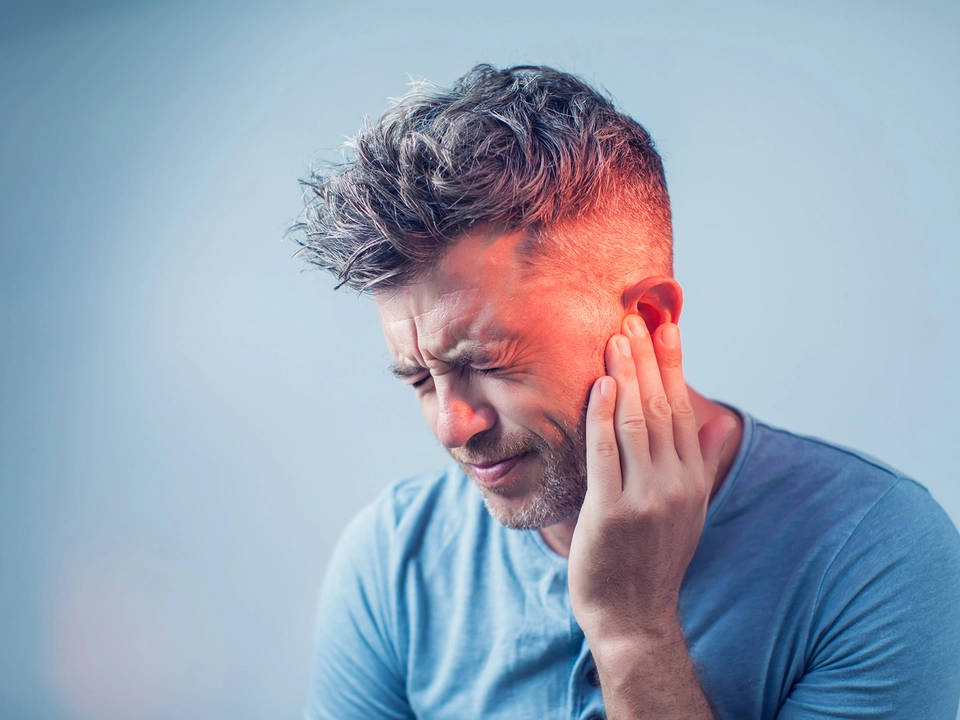Tinnitus: What to Do When Your Ears Won't Stop Ringing
About 10–15% of adults experience tinnitus at some point. Tinnitus is the perception of sound—ringing, buzzing, hissing, or whooshing—when no external sound exists. Most people have subjective tinnitus heard only by them; a small number have objective tinnitus that a doctor can detect.
What does tinnitus feel like? Sounds vary. It can be a high-pitched tone, low rumble, or a pulse that follows your heartbeat. It might be constant, come and go, get louder when you’re tired, or worsen in quiet rooms. Severity ranges from a mild annoyance to something that affects sleep, concentration, or mood.
What causes tinnitus?
Hearing loss is the most common cause. Loud noise damage, aging, and earwax buildup often trigger it. Other causes include ear infections, Eustachian tube dysfunction, temporomandibular joint (TMJ) problems, and certain medicines—high-dose aspirin, some antibiotics, loop diuretics, and chemotherapy drugs can make tinnitus worse. Rarely, vascular problems or tumors near the ear cause pulsatile or one-sided tinnitus.
When to see a clinician. Book an appointment if tinnitus starts suddenly, comes with hearing loss or dizziness, occurs only in one ear, or beats with your pulse. Also see a doctor if it disrupts sleep, work, or mental health.
How doctors check tinnitus. Expect an ear exam, hearing test (audiogram), and simple checks for earwax or infection. If symptoms suggest a blood-vessel problem, an ENT might order imaging or vascular tests. Your provider will review medicines and health history to find reversible causes.
Practical relief and treatment options
There’s no universal cure, but several approaches help. Remove earwax and treat infections first. If a medication contributes, discuss alternatives with your prescriber. Hearing aids reduce tinnitus for people with hearing loss by improving background sounds. Sound therapy—white noise machines, apps, or in-ear maskers—can make tinnitus less noticeable, especially at night. Cognitive behavioral therapy (CBT) and tinnitus retraining therapy teach coping skills and reduce the distress tinnitus causes. For severe, treatment-resistant cases, specialists may discuss implants or targeted medical treatments, though drugs don’t reliably eliminate tinnitus.
Daily tips that often help. Protect your ears from loud noise and use earplugs at concerts or noisy workplaces. Keep bedroom sound on—a fan or low-volume app can prevent silence from amplifying the ringing. Limit caffeine and nicotine if they worsen symptoms. Manage stress with breathing exercises, short walks, or routine sleep habits.
Where to start now. Check your medicines and get an ear exam. If hearing tests show loss, try a hearing aid or a sound generator. If tinnitus affects your mood or sleep, ask for a referral to an audiologist or ENT who treats tinnitus. GlobalCareRx has articles on medications and supplements that may influence tinnitus—read those before changing any drug.
Start a short symptom diary: note when tinnitus is louder, your sleep, recent medication changes, and noise exposure. Bring this to appointments — it helps clinicians spot patterns and speeds diagnosis. Small records often lead to faster relief plans and smarter treatment choices. Start now.

